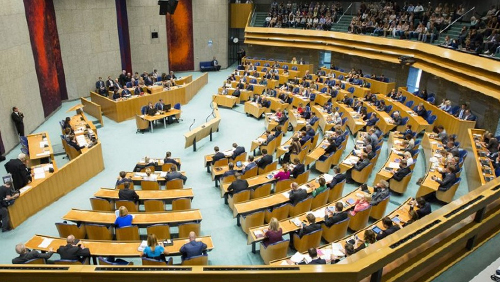As anticipated, the Dutch Senate held a vote yesterday on its Remote Gambling Bill. The results are in and the process of issuing online gambling licenses will begin sometime during the middle of next year. It took over three years, but at least the bill has survived.
 The lower house of the Dutch Parliament approved the bill about three and a half years ago and the Senate has now given its approval, as well. The country will begin to restructure the online gambling market in the country in order to allow international online gambling operators to submit license requests from the Kansspelautoriteir, the country’s regulator, and to enter a new regulated market.
The lower house of the Dutch Parliament approved the bill about three and a half years ago and the Senate has now given its approval, as well. The country will begin to restructure the online gambling market in the country in order to allow international online gambling operators to submit license requests from the Kansspelautoriteir, the country’s regulator, and to enter a new regulated market.
Analysts have indicated that the licensing process should begin sometime in the middle of next year, with the new regulatory organization beginning on January 1, 2021. This is certainly going to draw a lot of attention from a number of operators who have been waiting – mostly impatiently – for progress to be made in the country.
The Netherlands is an attractive market for online gambling operators. This is due primarily to the popularity of betting activity in the country, which saw an increase of 20% in gambling between 2016-2018 compared to the two years prior.
Kansspelautoriteit has long attempted to curtail unregulated gambling in the country, but the current regulatory framework didn’t give it the power it needed to effectively monitor and manage the space. It has tried to go after companies that targeted local gamblers, but has not been able to collect fines it assessed.
Once enforcement of the new regulations begin, online gambling companies will be required to adopt tools and policies that will minimize the risk of gambling addiction and protect players more effectively. All operators, for example, will need to register with a centralized self-exclusion program designed to allow problem gamblers to exclude themselves easily from the activity for a certain amount of time.
The Betsson Group, one of the international operators with its eye on the Dutch market, has expressed its satisfaction with the bill’s approval. The company’s CEO, Pontus Lindwall, said in a statement, “Finally, there will be modern gambling legislation in one more big monopolistic market in Europe… We welcome the regulation despite our concern about the so called cooling off period which could harm channelization of local customers as well as be deemed as non-compliant with EU law.”
The “cooling off period” refers to a proposal submitted by the Dutch Minister for Legal Protection, Sander Dekker, that seeks to prevent previously “illegal operators” from being able to receive a license for two years. Dekker adds that he’s happy with the results and that the Netherlands can finally offer its citizens a safe and secure gambling environment.